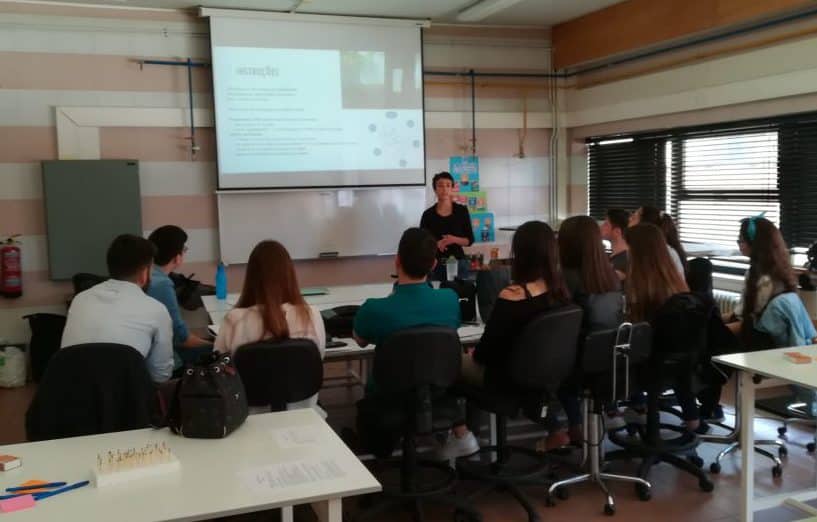
With the aim of outreaching my research as well as practicing my teaching skills, I decided to volunteer to give lectures in my department (Department of Social, Political and Territorial Sciences, University of Aveiro). The two professors that accepted to have me as a guest in their course both proposed the same day- the 21st May! After some doubts, I decided to accept the challenge: after all, my idea was to play a game with students, so it wouldn’t too tiring… I thought!
A low-cost and fun game
We played the Tragedy of the Commons game. This is a very known game useful to explain the theory of the Tragedy that Hardin wrote about in 1968. I played it myself at my Masters through a computer game, but my colleague Elgars told about a hand made version of it quite handful to apply it in any setting and with little resources (available here at pg.20-21, and here at pg.10-11) . The only thing you need are MATCHES!

Playing the Tragedy of the Commons…and proving that it’s wrong!
Students are divided in groups of six, each having a forest with 50 trees (50 matches). In the first round members of the group decide individually how many trees to harvest, competing between them for the highest harvest. At the second round members of the same group work together and compete against the other groups. They can talk and decide a collective strategy with the bests moves to have the highest collective harvest.
After complex calculations (counting matches, dividing, multiplying, a lot of thinking and discussing) the students got the results, and they were very surprised! This game clearly shows, through practice, that the best results (both from an individual and collective standpoint) are attained when the group collaborates and defines a collective strategy. A student told me that it was strange for her to realize that one doesn’t need to compete to win!

The follow-up discussion
I followed the game by asking them why did they collaborate at the second round. This introduced the point made by Elinor Ostrom in the 1990’: that, as in the game, in real life people do collaborate when they define their own rules for access, use and management of a commons, but also when they trust each other or have shared norms of behaviour.
Then, I wanted to follow with a discussion of the policy implications of these results (since they were Public Policy students), but unfortunately my time management was a bit too optimistic! In 1h30 I just could play the game, discuss the results and talk very succinctly about Ostrom.
But anyhow, I find this game perfect to explain how the Tragedy is wrong as an introduction to talk about the non-sense of many policies that are still based on the belief of self-interested and rational individuals… Instead, if we think of humans and society as capable of self-organizing to provide common goods, then policies should actually empower and enable people to do so (unfortunately, in Spain and Portugal we are very far from that…).
I very much liked to have the opportunity to interact with students, and I realize how far I am from them in my daily life. I will hopefully repeat next semester with new classes (if time allows). And hopefully with improved time management skills!
